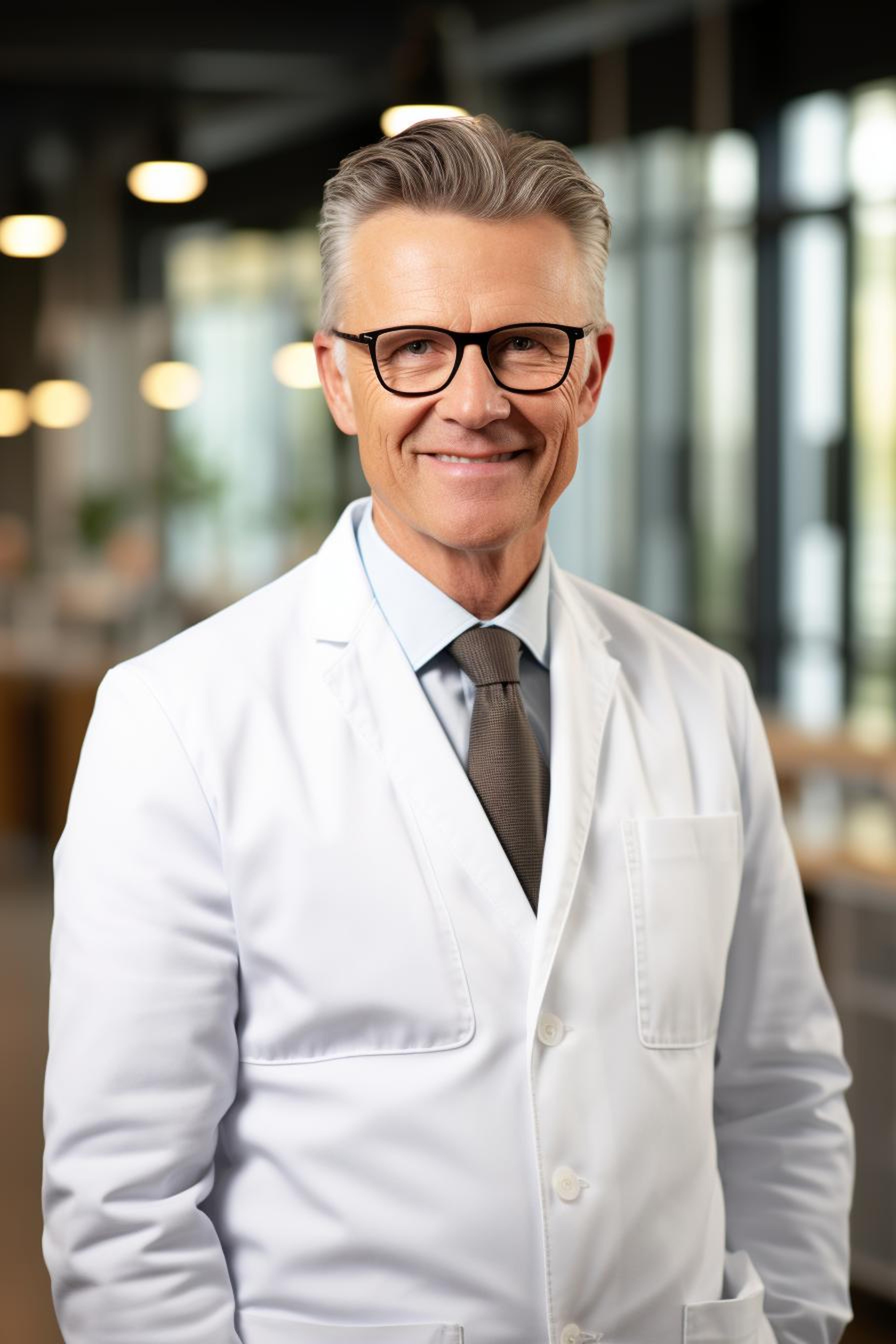Colon Cancer Screening in Dallas, TX
What is a colon cancer screening?
Colorectal cancer is the third most diagnosed cancer, but it’s also among the most preventable types. The large intestine, consisting of the colon and rectum, absorbs water and nutrients and stores waste until expulsion.
A colon cancer screening identifies polyps and cancerous growths in the colon and rectum before symptoms manifest. Polyps are noncancerous growths that can become cancerous if not removed. Early detection and removal of these growths can prevent serious complications and fatalities.
Digestive Health Associates of Texas’s board-certified gastroenterologists perform regular colon cancer screenings and advise starting at age 45. Contact your nearest Digestive Health Associates of Texas office to schedule a screening.

What are the benefits of a colorectal cancer screening?
Routine screenings for colon and rectal cancer are crucial for your overall and gastrointestinal health. Although different screening methods exist, such as stool testing, a colonoscopy is the only colorectal cancer prevention technique. The benefits of colorectal cancer screenings include:
- Identifying and removing polyps in the colon and rectum
- Detecting colon or rectal cancer early
- Potentially preventing the development of colon cancer
- Detecting other gastrointestinal issues, like inflammatory bowel disease
- Acting as a life-saving examination
Colon cancer often shows no symptoms until it is advanced. Regular screenings help your doctor find any concerns early.
Are there colon cancer screening options?
It’s important to discuss with your GI doctor the right time to start colon cancer screening and which tests to use. Here are some commonly used tests for colon cancer screening:
- Virtual colonoscopy: This noninvasive method uses a CT scanner to take cross-sectional images of the colon. The patient lies on a table while the scanner captures detailed images. No sedation is needed. If abnormalities are found, a traditional colonoscopy is required to remove polyps or tumors.
- Double-contrast barium enema: A tube is inserted into the rectum to pump barium sulfate and air into the colon. The barium coats the colon’s walls, and x-ray images are taken to detect abnormalities. If issues are found, a colonoscopy is needed for polyp or tumor removal.
- Fecal tests: These tests use fecal samples and are entirely safe. While they may not provide a definitive diagnosis, they can indicate gastrointestinal abnormalities that require further testing. A positive result necessitates a colonoscopy to check for cancerous growths. There are three types of fecal tests:
- Fecal occult blood tests: Detect hidden blood in the feces through a chemical reaction
- Fecal immunochemical tests: Identify hidden blood using an immunochemical reaction with a specific blood protein
- Stool DNA tests: Look for abnormal DNA from cancerous growths or polyps in the stool
- Flexible sigmoidoscopy: This test uses a sigmoidoscope, a slender tube with a camera, to inspect the rectum and lower colon. Inserted through the rectum, it provides images on a monitor. It can also be used to biopsy or remove polyps. However, a full colonoscopy is necessary to view the entire colon and remove all polyps. While it is generally safe, there is a small risk of bowel tears, bleeding, and infection.
- Colonoscopy: A colonoscope, longer than a sigmoidoscope, examines the entire colon. Inserted through the rectum, it allows doctors to see the colon’s inner wall on a monitor. Special tools can be passed through the colonoscope to perform biopsies or remove polyps. Sedation is required for this procedure. There is a small risk of bowel tears, bleeding, or infection. This method is the only one that offers complete colorectal examination and polyp removal.
These screening options are critical tools in the early detection and prevention of colon cancer.
Who might be at risk for colon cancer?
- Women with a history of breast, ovarian, or uterine cancers
- People aged 45 and older
- Those who have previously been diagnosed with colon cancer
- Individuals with a sedentary lifestyle, unhealthy eating habits, and who smoke
- People with inflammatory bowel diseases like ulcerative colitis or Crohn’s disease
- Those with a genetic condition called familial adenomatous polyposis, leading to numerous colon and rectal polyps
- Individuals with close family members, such as parents, siblings, or children, who have had colon cancer
Colon Cancer Screening FAQs
Why is having colon cancer screenings important?
Colorectal cancer often begins due to irregular growths in the colon or rectum called polyps. During a colonoscopy exam, these premalignant growths can be removed to help reduce the chance of and potentially even prevent colorectal cancer development. Having regular colorectal cancer screenings can also allow doctors to find cancer that has already progressed. When colon or rectal cancer is detected in the early stages, it can be easier to address.
At what age should I start having colon cancer screenings?
People with an average risk should begin having regular colorectal cancer screenings at age 45. Individuals with a greater risk may need to start these screenings earlier. Your GI doctor can help you determine precisely when you should begin having colorectal cancer exams.
How often should I undergo a screening for colon cancer?
The intervals at which individuals should have colorectal cancer screenings may depend on the type of evaluation being performed. Typically, individuals aged 45 years and older should undergo a colonoscopy exam once every decade when they have an average risk of developing colon or rectal cancer and have colonoscopies with normal results. Patients with a significantly high risk should have colonoscopy exams a minimum of once every five years. To learn how frequently you should undergo a colorectal cancer screening, please speak with your GI specialist.
How should I prep for my colon cancer screening?
The preparatory instructions for a colon cancer screening will be based on the form of screening scheduled. With a colonoscopy screening, certain prep instructions will be given to you by your GI team before the procedure to clean out your colon. Your gastroenterologist may also provide additional directions to follow for several days prior to your exam. It is imperative to follow your doctor’s instructions to help ensure they can identify any concerns when performing your screening for colon cancer.

